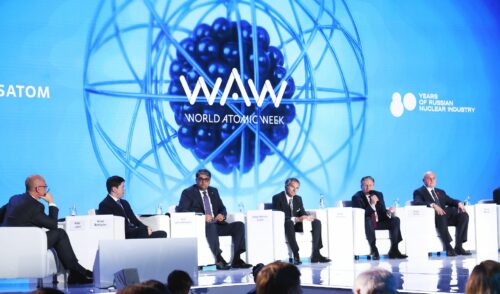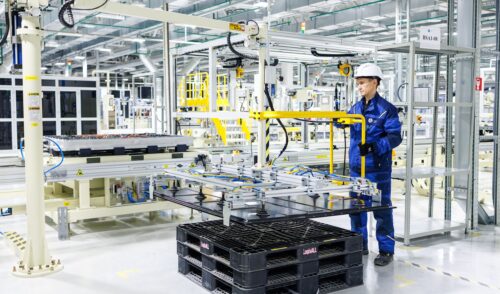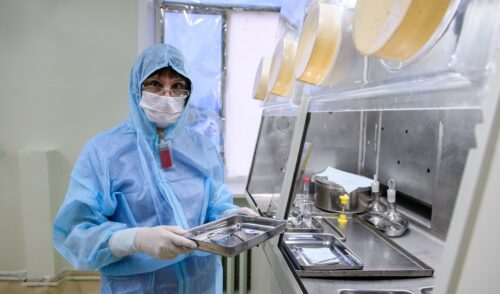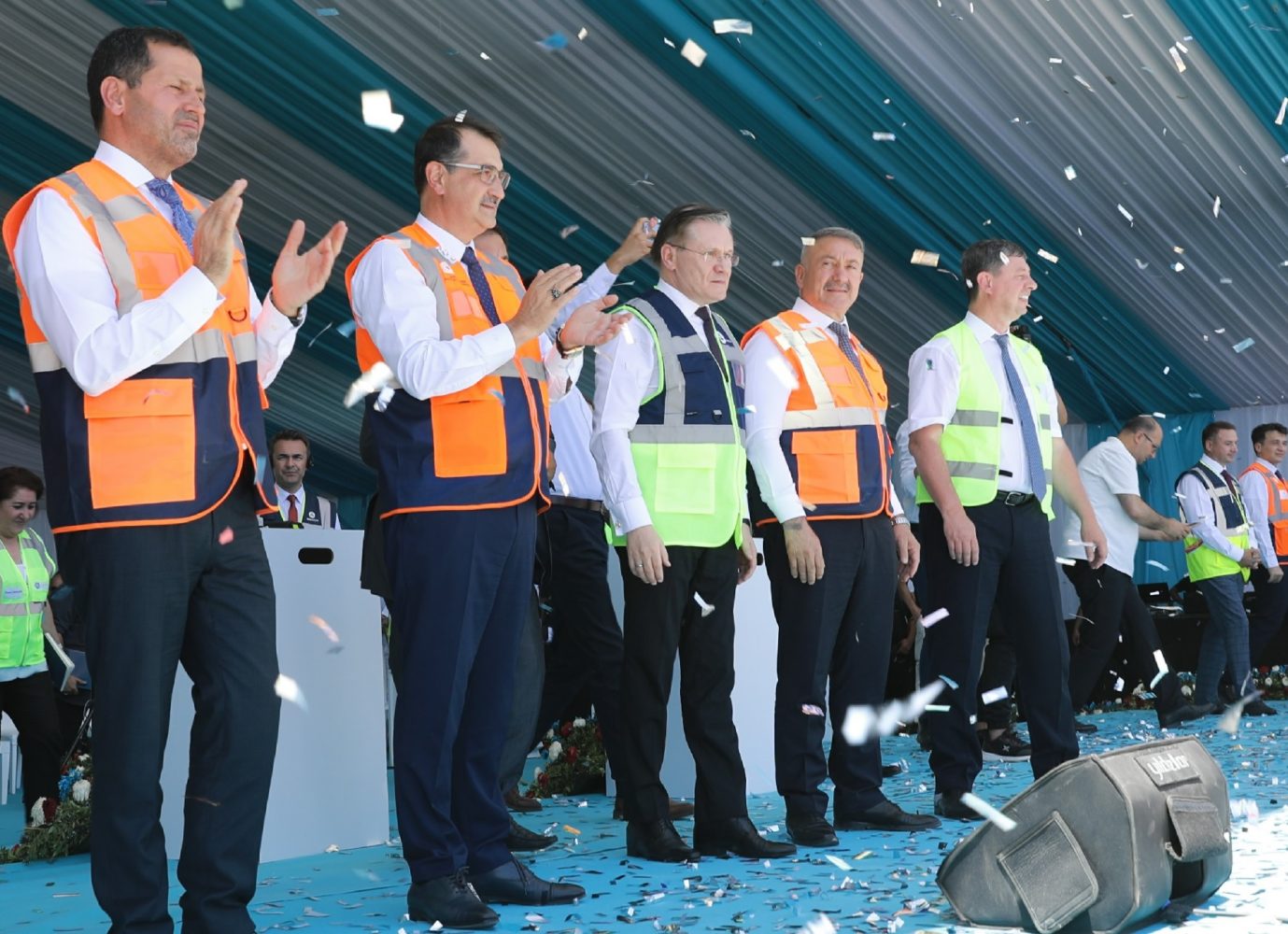
Double Concrete
back to contentsIn late July, first concrete was poured at two nuclear power plants built by Rosatom abroad. On July 20, construction was officially kicked off at El Dabaa Unit 1 in Egypt. A day later, first concrete was poured for the foundation of Akkuyu Unit 4 in Turkey.
Egypt
El Dabaa is the first nuclear power plant in Egypt and the first one to be built in Africa in the 21st century. It is named after a neighboring town lying on the Mediterranean coast in the Matrouh Governorate.
The nuclear power plant will have four 1,200 MW reactor units. All of them will be built to the Russian Generation III+ VVER‑1200 design. This design has many references with four reactors of the same type operating in Russia, another one in Belarus, and 11 more under construction. Leningrad NPP in Russia serves as a reference plant for the Egyptian nuclear station.
Alexey Likhachev, Director General of Rosatom, and Mohamed Shaker, Minister of Electricity and Renewable Energy of Egypt, gave a kick-off to the construction of El Dabaa. The construction permit was issued by the local regulator, Egyptian Nuclear and Radiological Regulatory Authority, in late June this year. “The start of construction works at the first unit of El Dabaa NPP means Egypt has joined the global nuclear club. This will be the largest Russian-Egyptian project since the construction of the Aswan High Dam. Nuclear industry has been a dream of the Egyptian people for more than half a century, so it is an honor for Rosatom to make this dream come true,” Alexey Likhachev said at the ceremony.
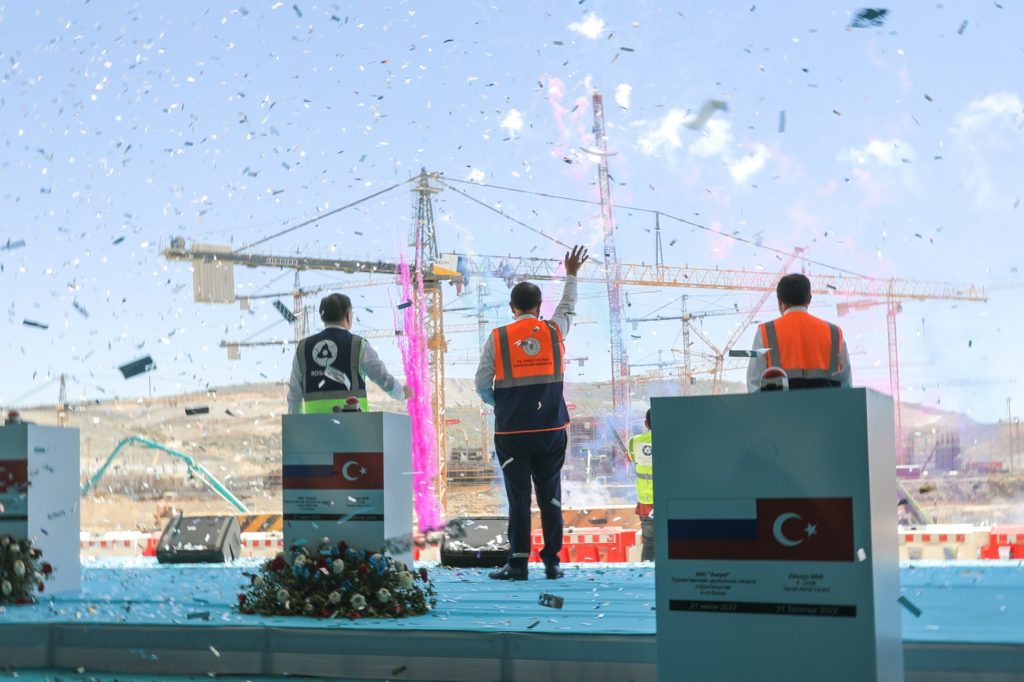
Amged El-Wakeel, Chairman of the Nuclear Power Plants Authority (NPPA) of Egypt, noted: “This day would not have come if not for the decision of President of the Arab Republic of Egypt Abdel Fattah al-Sisi to give a green light to the Egyptian nuclear project. All government authorities spare no effort to achieve our common goal as they understand that the Egyptian nuclear program is part of the overarching national development strategy.”
The package of contracts for the construction of El Dabaa was signed in December 2017. They provide that Rosatom will not only build the power plant but also supply nuclear fuel for it throughout the station’s service life and assist the Egyptian party in staff training, operation and maintenance of the station for the first ten years after commissioning. Russia will also build a storage facility for spent nuclear fuel and supply dedicated storage casks.
Starting from September 2021, the Russian nuclear corporation has been fulfilling its contract obligations related to staff training. Several hundreds Egyptian students are already doing a training course at the Saint Petersburg branch of Rosatom’s Technical Academy. It is planned that about 1,700 employees will complete their studies by December 2028. They will also undergo practical training on a simulator installed at the new power units of the Leningrad nuclear power plant.
Production of equipment for El Dabaa has started in Russia. In June 2022, workers proceeded with the manufacturing of workpieces that will be turned into a reactor pressure vessel. “We are sure that El Dabaa nuclear power plant will bring new power technologies to Egypt and contribute to the well-being and prosperity of the people of Egypt in the decades to come,” Amged El-Wakeel said when the production started.
A contribution to prosperity has already been made as Egyptian companies received orders and local employees began to work on the construction site. “We expect that the local content in the construction project will exceed 25%. During the construction phase, of course, most work will be done by Egyptian companies. In other words, local content in general construction works will be notably above 50 %,” Alexey Likhachev said on the sidelines of the AtomSkills contest in early August this year.
Turkey
In the Turkish town of Büyükeceli, first concrete was poured for the fourth — and last — reactor of the Akkuyu nuclear power plant. The construction permit for Unit 4 was issued by the Turkish Nuclear Regulatory Authority in October 2021.
The concreting was preceded by extensive preparations, including pit excavation, dewatering, laying of a concrete pad and waterproofing, and installation of rebar and embedments. With the concrete layer to reach 2.6 meters high, the workers will have to lay 17,000 cu m of concrete.
For Rosatom, Akkuyu is a flagship construction site overseas. “We all see a tremendous amount of work done on the NPP construction site. I can say with certainty that efficient cooperation between the companies of our countries, interest from Turkish businesses, and a smooth supply chain make our project a textbook example of collaboration between Russia and Turkey,” Alexey Likhachev said. The backlog of orders placed with local Akkuyu suppliers has exceeded USD 3 billion. More than 25,000 people are busy working on the construction site, and about 80 % of them are Turkish nationals. According to the Republic of Turkey Social Security Institution (SGK), the Akkuyu NPP is the largest employer in Mersin Province.
After all the four power units of the Akkuyu NPP are brought online, the plant will meet around 10 % of the country’s demand for electric power. The nuclear power plant will prevent 35 million tons of greenhouse emissions per year, or 2.1 billion tons over its 60‑year design life.


